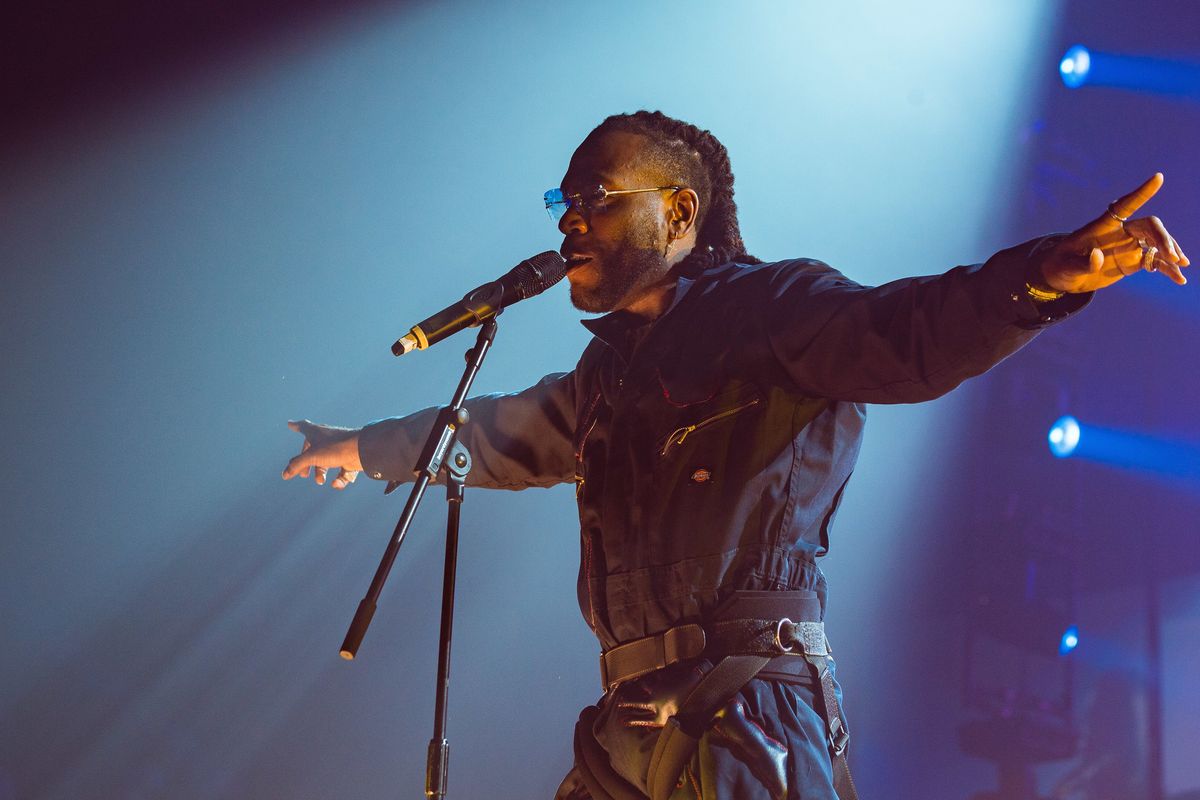Burna Boy Talks African Unity, Fela Comparisons, South Africa Comments & More In New GQ Profile
"The reason for everything I do and how I do it is for one goal and one goal only, and that's the eventual unity of Africa," says the artist in an illuminating new GQ story.

Burna Boy is the subject of an extensive new profile from men's lifestyle magazine GQ Style.
The story, entitled "Burna Boy, Global Giant" sees the artist addressing several "hot topics," surrounding his life and career, including his hopes for a united Africa, comparisons to the Nigerian legend Fela Kuti, and touches on the comments he made last year about refusing to perform in South Africa following a spate of xenophobic attacks in the country, which led to the cancellation of the 'Africans Unite' concert, which he was set to headline.
READ: The 20 Essential Burna Boy Songs
"It's all just very fucked-up and twisted, and I wish to God that it wasn't so, but it is, and all I can do is try and do my part to change it, no matter how small that part is," he says about the divisive response to the matter. "It's almost as if the oppressors have won when the oppressed start acting like this."
He continues:
"There's too much going on in the world for everybody to just care about being fucking rich and fucking Instagram-clouded; everybody can't be that," he rails. "The more of that there is, the more the world suffers, and what's important just goes down the drain and the downward spiral continues. It's even accelerated. Now is the time. Everybody should wake the fuck up. South Africa and the whole of Africa needs to wake the fuck up."
On the matter of comparisons between him and the iconic Nigerian musician Fela Kuti—a topic that sparked a debate last month when Burna referred to himself as "the best since Fela Kuti" in a since deleted tweet—the artist insists that such talk actually makes him uncomfortable.
"Fela is my inspiration and my childhood hero, so if you think comparing me to Fela is honorable, it's actually not," he tells the magazine. "It actually makes me feel weird. Fela was Fela, and if it wasn't for Fela, there probably wouldn't be any me, so I don't understand the comparison."
The piece also illuminates Burna's vision of using his music as a tool to unite the continent. "The reason for everything I do and how I do it is for one goal and one goal only, and that's the eventual unity of Africa," says Burna. "One day we'll have one passport, one African currency, one Africa. Then and only then will my mission be complete."
The article was written by Nigerian-American entertainment journalist Lola Ogunnaike, and sheds new light on the often reserved artist. The editorial features striking images by Ghanaian photographer Prince Gyasi who captures the artist in colorful designer threads in vibrant setting across Lagos, as well as production from a number of African creatives that brought the story to life, including stylist Mobolaji Dawodu, producer Bola Belo and more.
See more photos from the shoot below, and read the full Burna Boy profile on GQ Style.
- The 20 Essential Burna Boy Songs - OkayAfrica ›
- Listen to Burna Boy's New Album 'African Giant' - OkayAfrica ›
- Burna Boy Won 2018 - OkayAfrica ›
- Meet Sajjad, the Artist Behind Burna Boy's 'African Giant' Album Art ... ›
- Burna Boy Drops Infectious New Song 'Odogwu' - OkayAfrica ›
- Dangote Isn't Nigeria's Hero, But Don't Ask Burna Boy - Okayplayer ›
- Lil Durk Puts Out “All My Life (Remix)” With Burna Boy - Okayplayer ›

